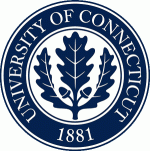On April 12, the department convened for an awards banquet that recognized the best among undergraduate and graduate students, as well as faculty. This year’s award recipients are:
Omicron Delta Epsilon inductees:
Kurtis Adei
Alex Amarante
Lyla Eljizi
Elizabeth Fesenmeyer
Clifford Garnet
John Giardina
Levi Jackson
Nicholas Leonetti
Michael Littman
Brett Mauro
Andrew Moynihan
Loi Nham
Shivani Panchal
Marcos Quispe
Thomas Samuels
Vidya Sridhar
Jennifer Stansfield
Matthew Travalini
Suo Wang
Daniel White
Mallika Winsor
Undergraduate Awards
Louis D. Traurig Scholarship
William Kimball
Colleen Phelan
Paige Rhymer
Vidya Sridhar
Ross Mayer Scholarship
Nicholas Leonetti
Garrett Rapsilber
Paul N. Taylor Memorial Prize
Kevin Landry
Antonio Spinelli
Rockwood Q. P. Chin Scholarship
Lydia Kowinko
Yuqi Xing
Graduate Awards
W. Harrison Carter Award
Paul Tomolonis
Albert E. Waugh Scholarship
Matthew Schurin
Abraham Ribicoff Graduate Fellowship
Elizabeth Kaletski
Economics Department General Scholarship (for 2012: Recognition for Excellence as a Teaching Assistant)
Eric Gibbons
Sara Kauffman
Matthew Joseph Histen
Timothy A. and Beverly C. Holt Economics Fellowship
Matthew Schurin
Rong Zhou
Zheng Xu
Peijingran Yu
Bryce Casavant
Faculty Awards
Grillo Family Research Award
Mikhael Shor
Grillo Family Teaching Award
William Alpert
Oskar Harmon
Congratulations to everyone!
 Professor Prakash’s “Cycling to School” project is featured on UConn Today. Professor Prakash’s project centers around providing bicycles to girls in rural India, in an effort to increase school attendance. The project is funded by the International Growth Centre .
Professor Prakash’s “Cycling to School” project is featured on UConn Today. Professor Prakash’s project centers around providing bicycles to girls in rural India, in an effort to increase school attendance. The project is funded by the International Growth Centre .



![hallwood[1]](https://uconnecon.files.wordpress.com/2012/04/hallwood1.jpg)
![t_prakash[1]](https://uconnecon.files.wordpress.com/2012/03/t_prakash1.jpg)

